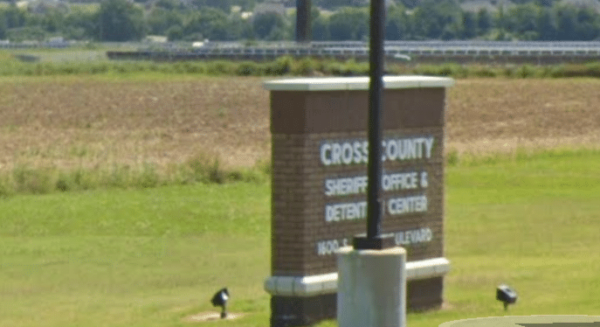
A former Cross County Sheriff's Deputy, 26-year-old Dillon Kemp, was taken into custody Friday, facing two felony charges of second-degree sexual assault. The arrest follows a detailed investigation by the Arkansas State Police (ASP) into allegations of misconduct involving two juvenile girls, according to Fox 13.
ASP revealed that the incidents involving Kemp occurred "in previous years," though specific timelines and further details remain under investigation. The victims’ ages have not been disclosed, but authorities confirmed both were minors at the time of the alleged assaults.
The case came to light after a tip was submitted to the Internet Crimes Against Children Task Force. According to Sheriff David West, the tip was relayed to his office due to Kemp’s status as a member of the Cross County Sheriff's Department.
Sheriff West confirmed that Kemp was immediately terminated from his position and booked into the Cross County jail following the investigation. "We take these allegations seriously and acted swiftly once the information was brought to our attention," West stated.
The incident has raised significant concern within the local community, as law enforcement officials continue their probe into the allegations. No further details have been released by the ASP at this time.

When abuse occurs at the hands of those entrusted to protect and serve, the impact can be devastating for victims and their families. Understanding the legal options available is an important step in holding abusers accountable and addressing the harm caused. We sat down with Arkansas school abuse attorney Joshua Gillespie to discuss the steps victims sexually assaulted by a deputy can take and how the legal system can provide a path forward.
Editor Darla Medina: When abuse involves someone in a position of authority, like a deputy, what legal avenues are available for victims and their families?
Attorney Joshua Gillespie: Victims and their families have the right to seek both criminal and civil remedies. The criminal process is handled by the state, aiming to prosecute the perpetrator and hold them accountable under the law. Meanwhile, civil cases allow victims to file lawsuits for damages, often against both the individual and any institutions that may have been negligent in preventing or addressing the abuse.
Medina: How do civil cases differ from criminal cases when it comes to outcomes for victims?
Gillespie: Civil cases provide an opportunity for victims to obtain compensation for the physical, emotional, and psychological harm they’ve suffered. Beyond that, they can lead to institutional changes, such as reforms in policies and practices, which can help prevent future incidents of abuse.
Medina: What would you say to families who might feel overwhelmed or hesitant to take legal action?
Gillespie: I would encourage them to speak with an attorney who specializes in abuse cases. They don’t have to navigate this alone. Legal professionals and support organizations can guide them through the process and help them understand their rights. Taking action not only helps the victim but can also protect others from harm.
If someone in your family has been sexually abused by a deputy or police officer, know that you don’t have to face this journey alone. Our experienced legal team is here to guide you through the process, fight for accountability, and help protect your rights. Contact us today for a free, confidential consultation to discuss your case and explore your options. Together, we can work toward the justice and closure your family deserves.
 info@legalherald.com
info@legalherald.com